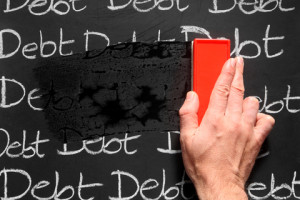Can all Types of Debt be Discharged Through Chapter 7 Bankruptcy?
Most everyone who files for Chapter 7 bankruptcy does so in hopes that their debts will be completely discharged. Discharging a debt means the debtor, or the person who owes money, will no longer be held liable to pay the amount initially owed and the creditor, or the person to whom the money is owed, is then prevented from taking any actions against collecting the debt.
Chapter 7 bankruptcy is useful in that most debts can be discharged, but there are still those that cannot be wiped away, and it’s best to have foreknowledge of what debts can and cannot be discharged before filing for bankruptcy.
Debts that Can be Discharged Through Chapter 7 Bankruptcy:
● Credit Card Debt
● Medical Bills
● Business Debts
● Collection Agency Debts
● Personal Loans from Employers, Friends, or Family
● Tax Penalties Past a Certain Number of Years
● Dishonored Checks (unless found fraudulent)
● Past Utility Bills
● Money Owed Under Lease Agreements
● Auto Accident Claims (unless from drunk driving)
● Civil Court Judgement (unless from fraud)
● Social Security and Veterans Assistance Over Payments and Loans
● Attorney Fees
Not All Debts can be Discharged
Although there are many debts that can be discharged through filing Chapter 7 bankruptcy, there are still other which cannot be wiped away. These debts include:
● Child Support and Alimony
● Many Tax-Related Debts
● Debts Caused By Breaking the Law
● Student Loans (except for very rare circumstances)
If you are currently overwhelmed by debt and are considering bankruptcy, call us today to speak with our highly experienced bankruptcy attorneys. Our attorneys are well versed in the complex laws concerning bankruptcy, and they have the knowledge to determine which of your debts can or cannot be discharged. Call us today to speak with one our bankruptcy attorneys and see how they can best serve you.








